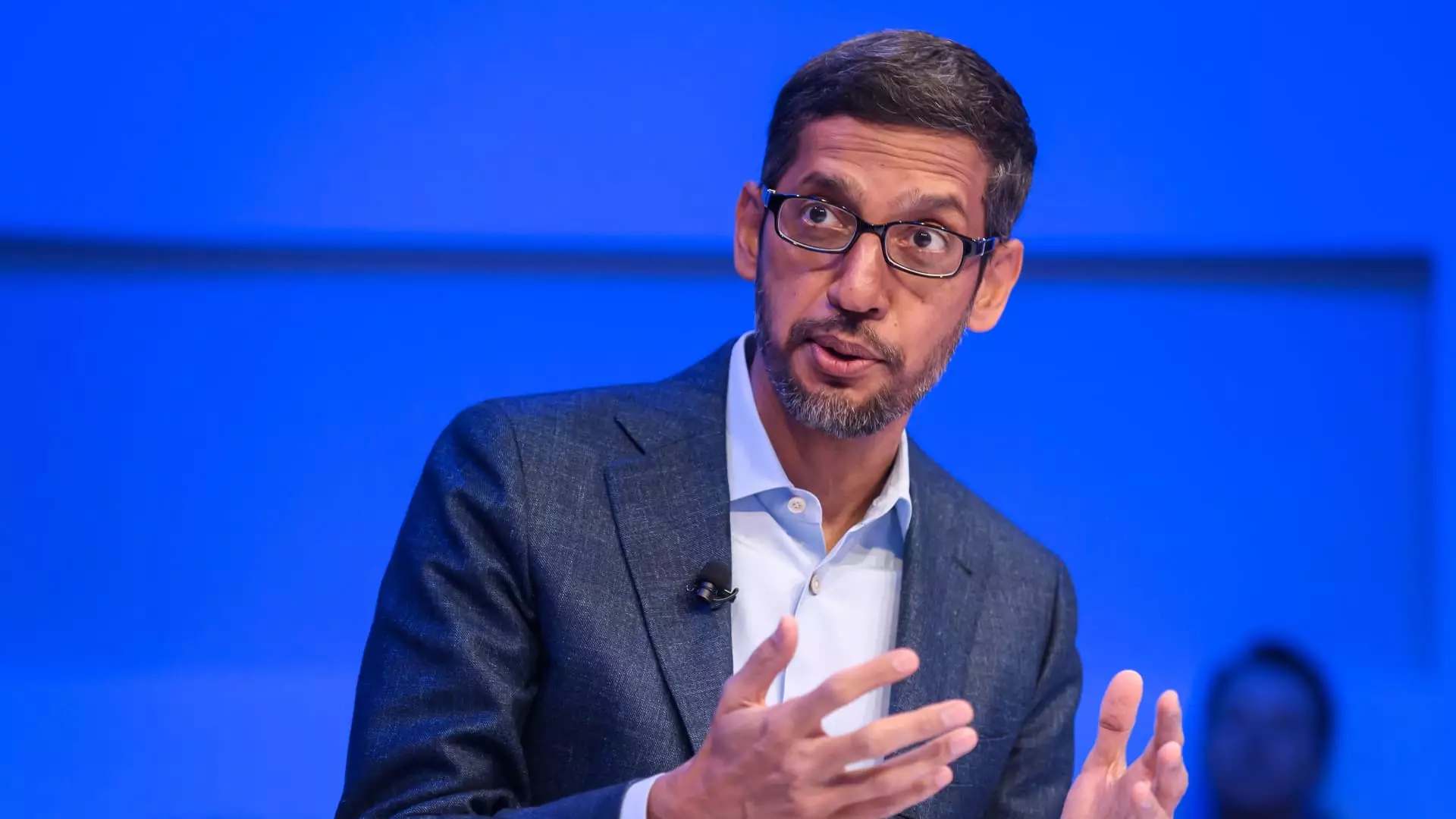As Google approaches 2025, CEO Sundar Pichai’s message to employees could not be clearer: the future is fraught with challenges that demand immediate and decisive action. Recent comments from Pichai highlight a growing awareness within the company about the shifting landscape influenced by competition, regulatory scrutiny, and rapid advancements in artificial intelligence (AI). In a strategy meeting that contrasted festive holiday sweaters with serious discussions, Pichai emphasized the need for urgency, urging employees to focus relentlessly on harnessing AI’s benefits to resolve genuine user challenges.
The stakes, according to Pichai, are indeed high. With internal pressure mounting and external competition intensifying, 2025 represents a pivotal moment for Google. The company, once comfortably entrenched as the leader in search and advertising, now faces a battleground intensified by emerging players utilizing generative AI technologies, which threaten to alter how users interact with the digital realm altogether. Pichai’s acknowledgment of these disruptive forces indicates an organization poised to adapt or risk obsolescence.
Google’s core services, including search ads and cloud computing, continue to herald growth, but this success is increasingly shadowed by fierce competition. OpenAI’s ChatGPT catalyzed a new wave of innovation and consumer engagement, effectively capturing user interest and setting the stage for a competitive race in AI-powered search capabilities. Microsoft’s strategic investment in OpenAI exemplifies the urgency that other tech giants feel as they navigate a rapidly shifting landscape dominated by generative AI.
Moreover, legal obstacles compound Google’s woes. Federal scrutiny, evidenced through antitrust lawsuits targeting its monopoly status in search, threatens to hinder its operations. The U.S. Department of Justice’s recent calls for Google to divest its Chrome browser unit signal a shift towards a more regulatory-intensive environment for major tech entities. Pichai’s recognition of these challenges—along with the ramifications of such scrutiny—underscores the intricate web of operational hazards that Google must navigate moving forward.
In spite of these hurdles, Google remains committed to innovation, positioning products like Gemini at the forefront of its strategy. With the potential to redefine user interaction, Gemini serves as a critical tool in addressing the competitive gap with players like OpenAI. Pichai is optimistic about the app’s trajectory, asserting that scaling it for consumer use will take precedence in 2025.
During the strategy meeting, executives outlined ambitions that reflect a desire not only to catch up but to outpace competitors. Pichai’s remarks regarding Geminis’s user adoption and the prospect of a universal assistant, as proposed by DeepMind co-founder Demis Hassabis, reflect a vision where AI improves the versatility and functionality of everyday tools. This ambition of creating a singular assistant capable of cross-domain seamless interactions speaks to Google’s foundational ethos: making complex technology accessible and user-friendly.
The internal dynamics within Google also merit reflection. As the tech giant works to cultivate a culture conducive to innovation, issues related to employee morale and cohesiveness have surfaced. Pichai’s call to “stay scrappy” signifies not only a nod to efficiency but a cultural ethos reminiscent of Google’s origins—a time before the company emerged as a colossal entity and needed to act with agility and creativity.
A workforce that’s increasingly aware of external competitive pressures might find itself torn between operational efficiency and the imperative for creative risk-taking. Thus, the challenge becomes crafting an environment where employees feel empowered to innovate within the constraints imposed by competition and regulation. Google must foster a climate where ideas can flourish despite external stresses rather than be stifled by them.
As Google stands on the precipice of 2025, it is faced with an intertwined set of challenges that will define its trajectory. The convergence of heightened competition in AI, regulatory challenges, and internal cultural shifts necessitates a recalibration of its strategies and mindsets. Pichai’s pressing reminder about the urgency of embracing the moment is a call to action—one that could either usher Google into a new era of technological leadership or lay bare the vulnerabilities that loom amid rapid evolution.
Navigating this complex landscape will require innovation, adaptability, and a relentless focus on the needs of users. In this shifting tech paradigm, no player can afford complacency; for Google, the stakes have never been higher.

